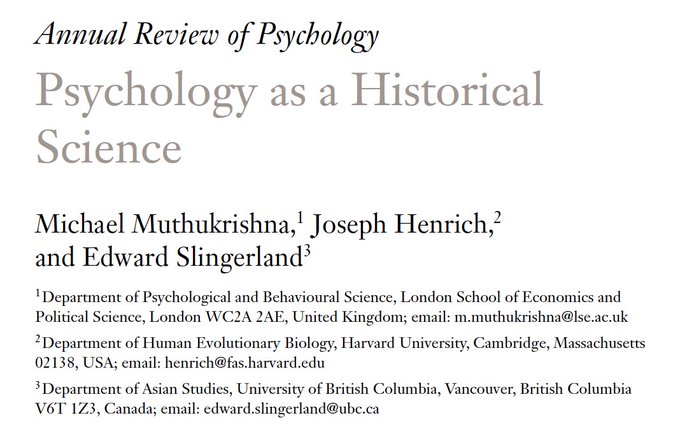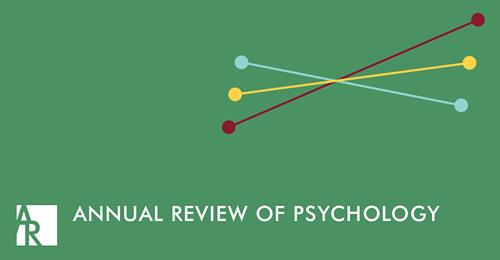Summary from Twitter thread:

New paper on “The Origins and Psychology of Human Cooperation” in Annual Review of Psychology. Many mechanisms have been proposed to explain human cooperation. How well do they explain the breadth, intensity, & variation across societies, history, & domain?
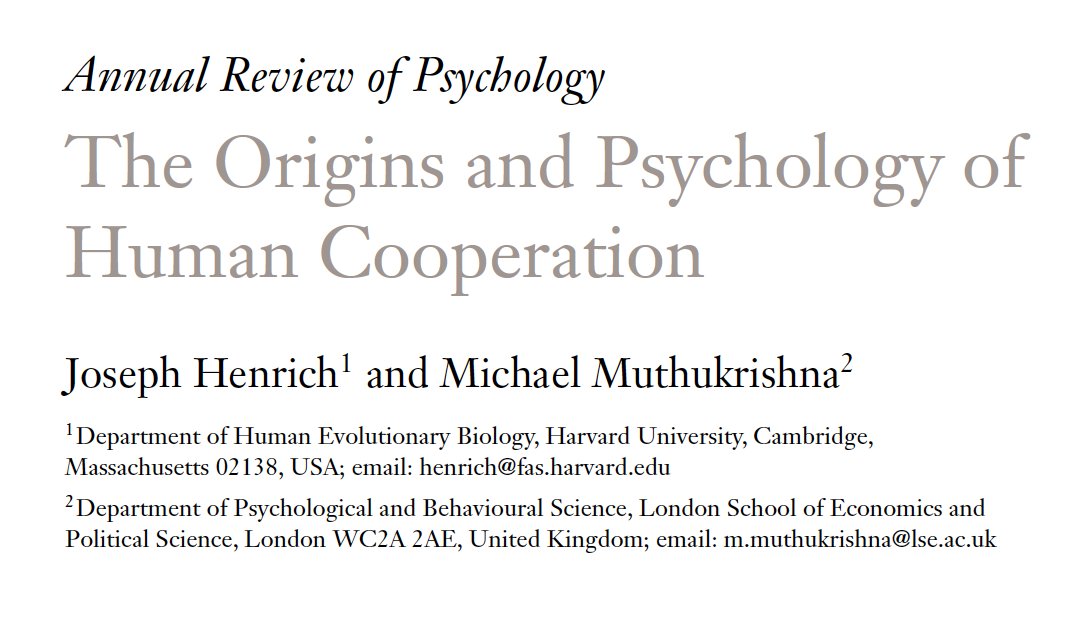
We review interdisciplinary evolutionary psychology that takes seriously both our primate heritage and our uniquely cultural nature – a “cultural evolutionary psychology”. Why, how, when, and on which things do different humans work together?
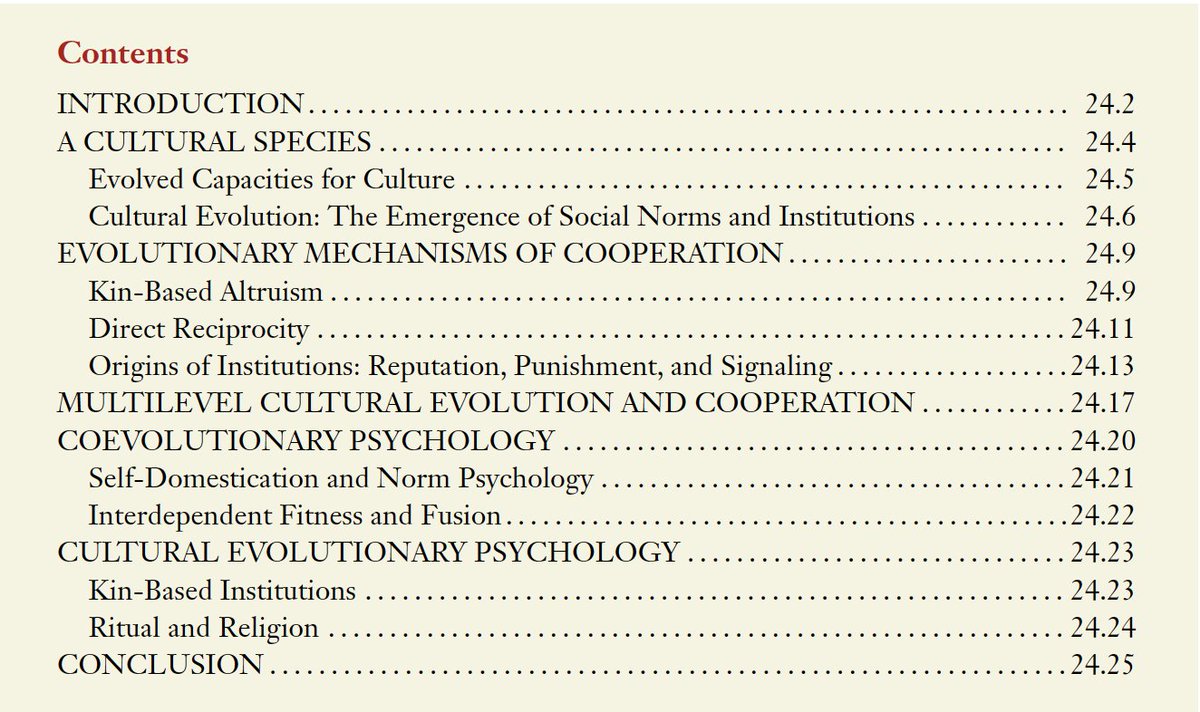
Humans in all societies cooperate far more than other mammals. We’re more prosocial than nonhuman primates who often look like rational choice models (these models are like Hardy-Weinberg models – null models without the effect of evolving norms & other culture).
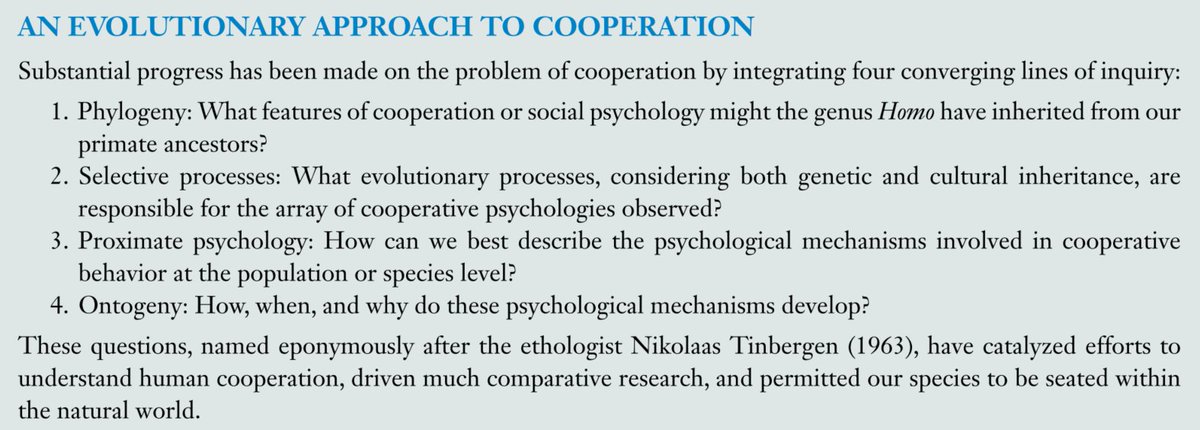
A more complete explanation needs to explain scale, intensity, and domain differences between societies-people cooperate on different things to different degrees. Need to explain the scaling up in the last 12k years. And that many mechanisms can support maladaptive behav.
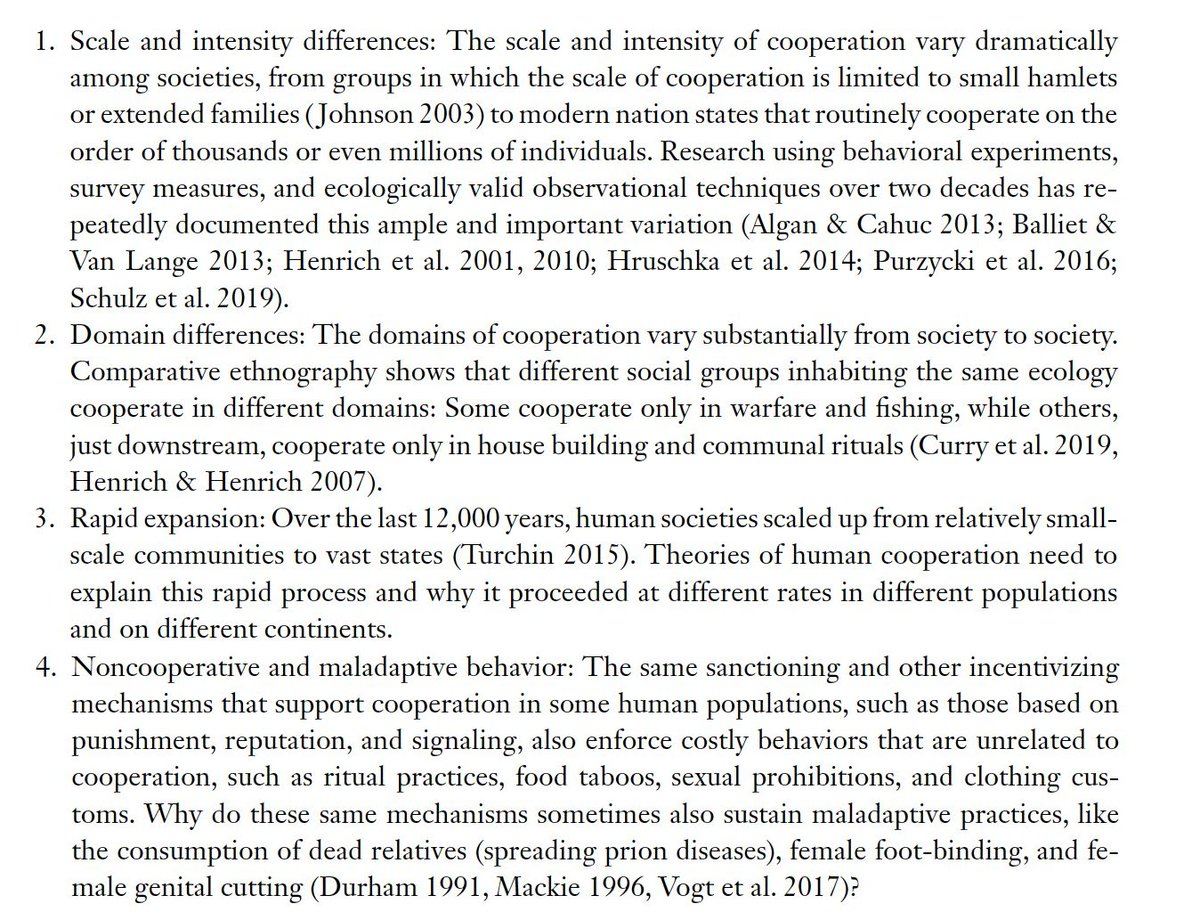
Explanations like language, intelligence, & institutions are insufficient. We can use language to lie, our cognitive abilities to cheat, & institutions can be undermined by lower scales of cooperation. Where did these come from anyway? See the cultural brain hypothesis & the collective brain. Also summarized in this lecture:
We use cultural evolution, dual inheritance theory, and the extended evolutionary synthesis as our theoretical framework & evaluate connected theories and evidence. For approach, see: https://www.nature.com/articles/s41562-018-0522-1 … (summarized).
Social norms and institutions – their origins and evolution is key to explaining the 4 features / puzzles of human cooperation mentioned before.
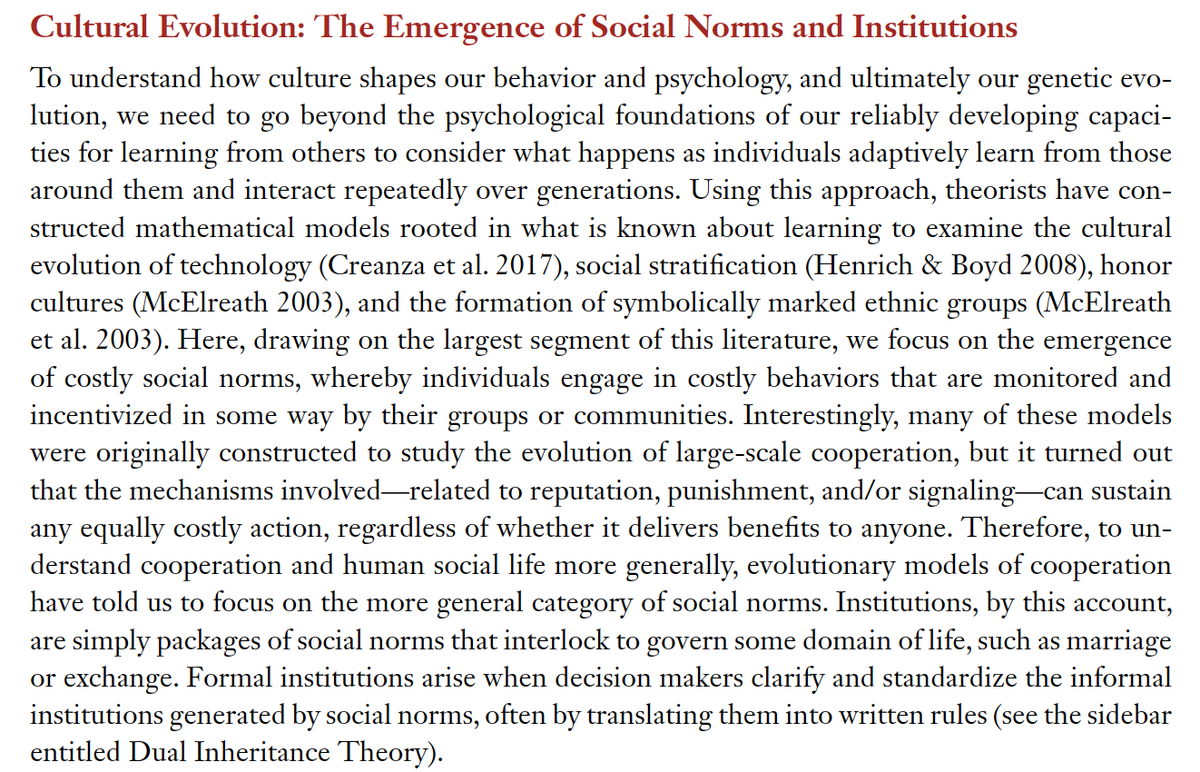
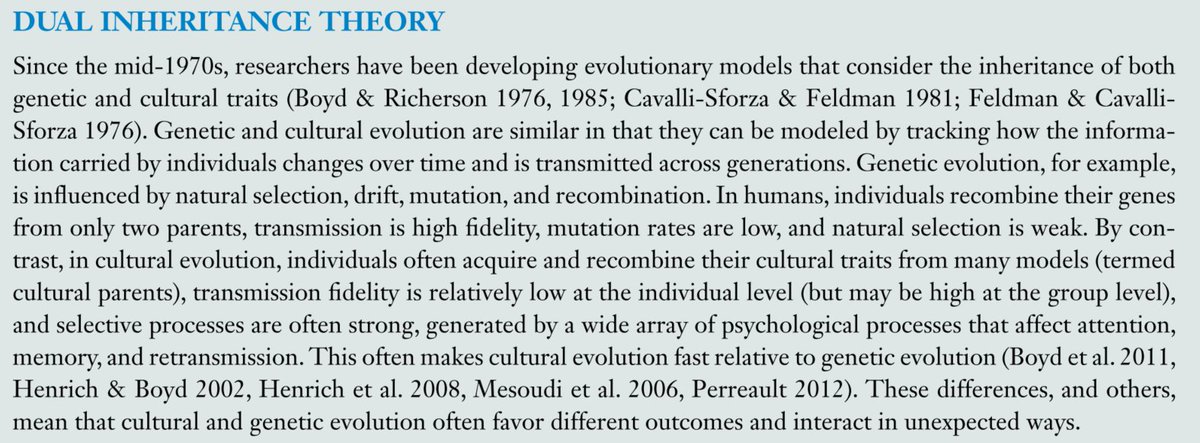
Some key concepts and behavioral experiments in cooperation.
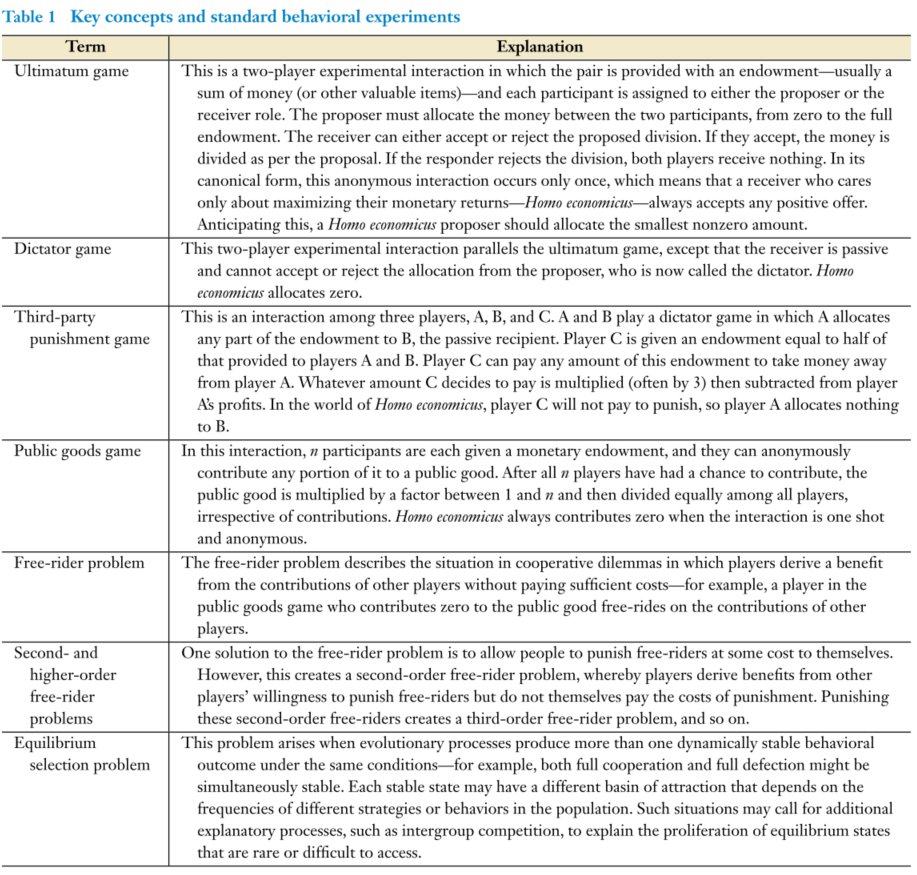
Social norms shape cooperation, differ b/w societies, kids copy adults. Fairness is not the same everywhere – e.g. inequity aversion is not universally symmetric. We don’t like when things are unequal and we have less, but folks differ on unequal where they have more.
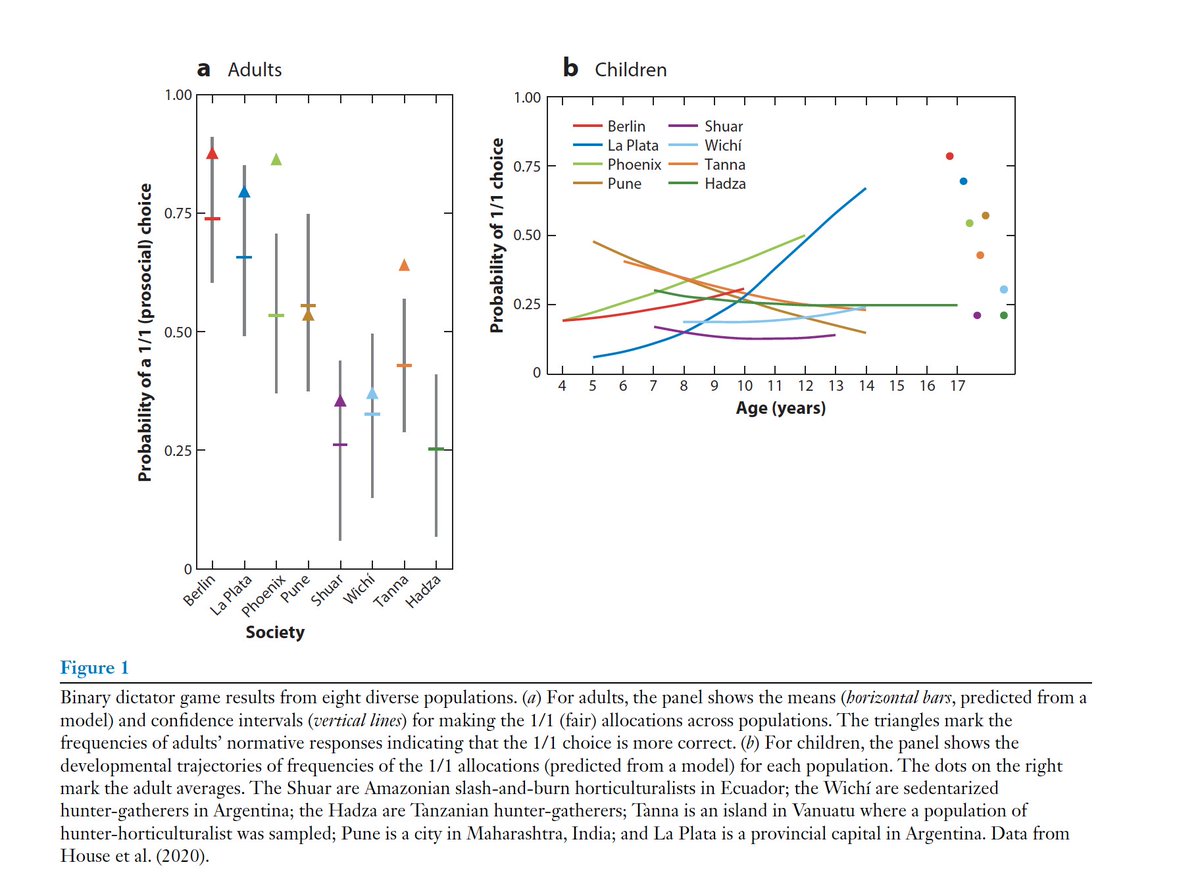
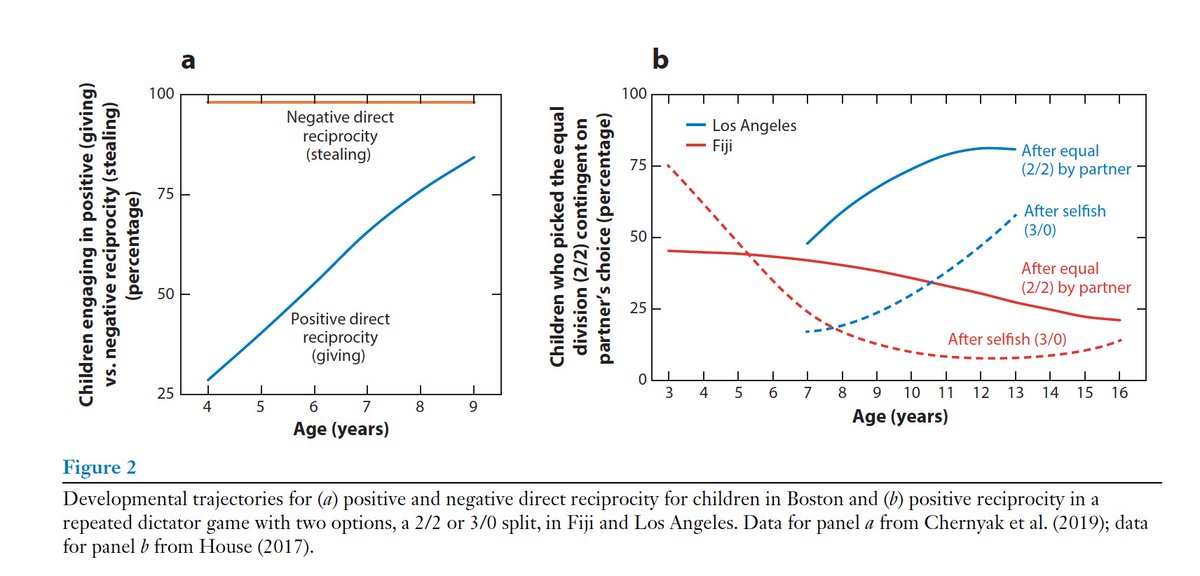
We review key mechanisms in broad strokes: kin-based, direct reciprocity, reputation, punishment, signaling. Origins of institutions. WEIRD intuitions are not a good guide – take partner choice for example.

So you have societies with different norms & sustained by different mechanisms of cooperation. Which ones spread? Competiton w/ sufficient resources can favor higher scales, but lower scales can undermine higher scales – corruption or autocracy or insurrection etc. Need alignment between levels.
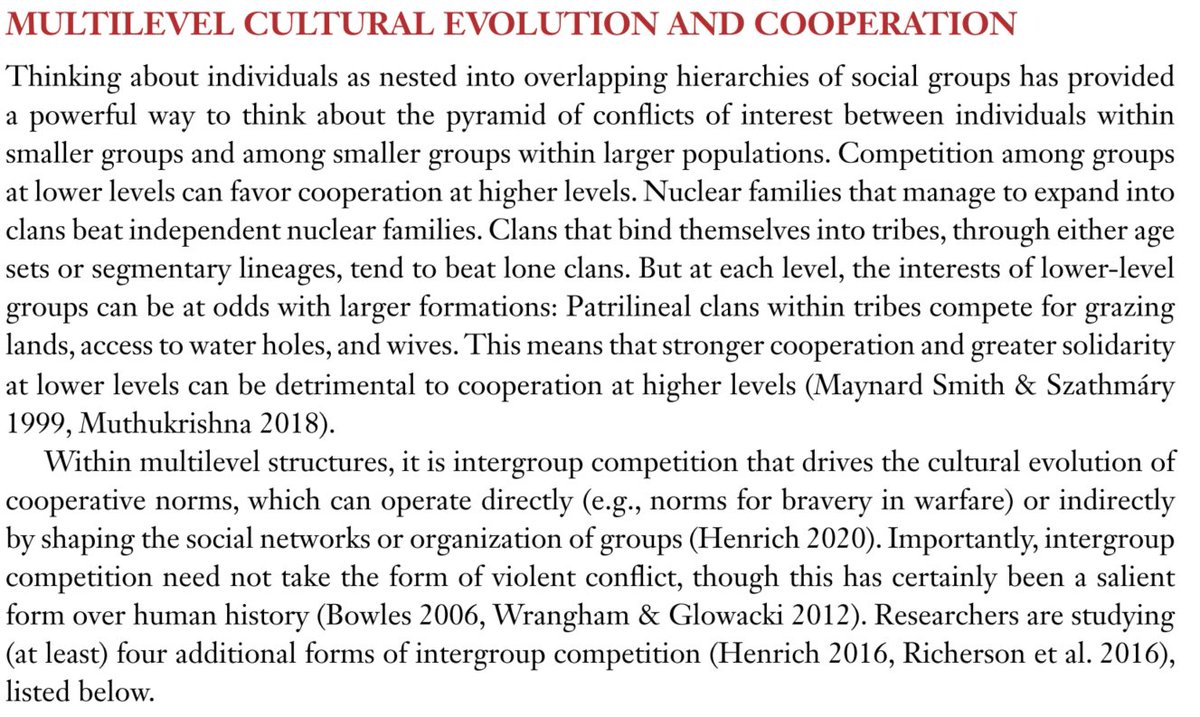
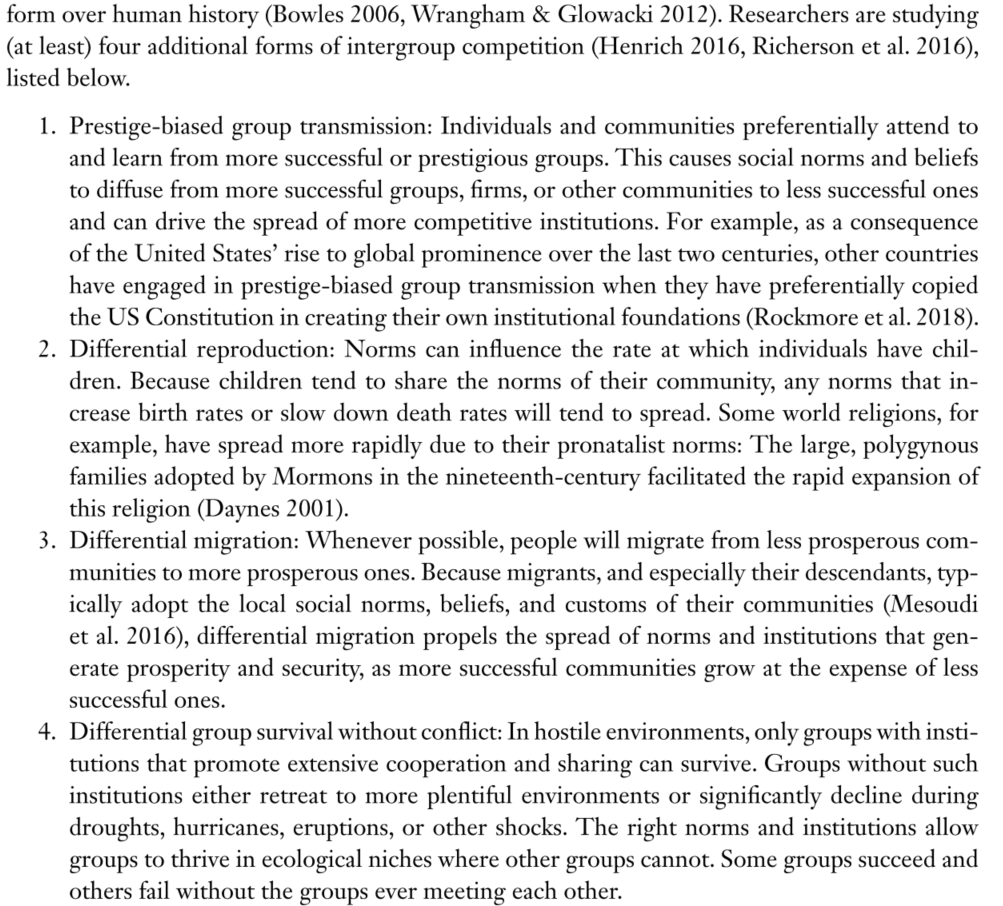
The mechanisms of cooperation discussed are not alternatives to this competition. They are solutions to the free-rider problem with limits on scale and that can undermine one another. You also need to solve the equilibrium selection problem.
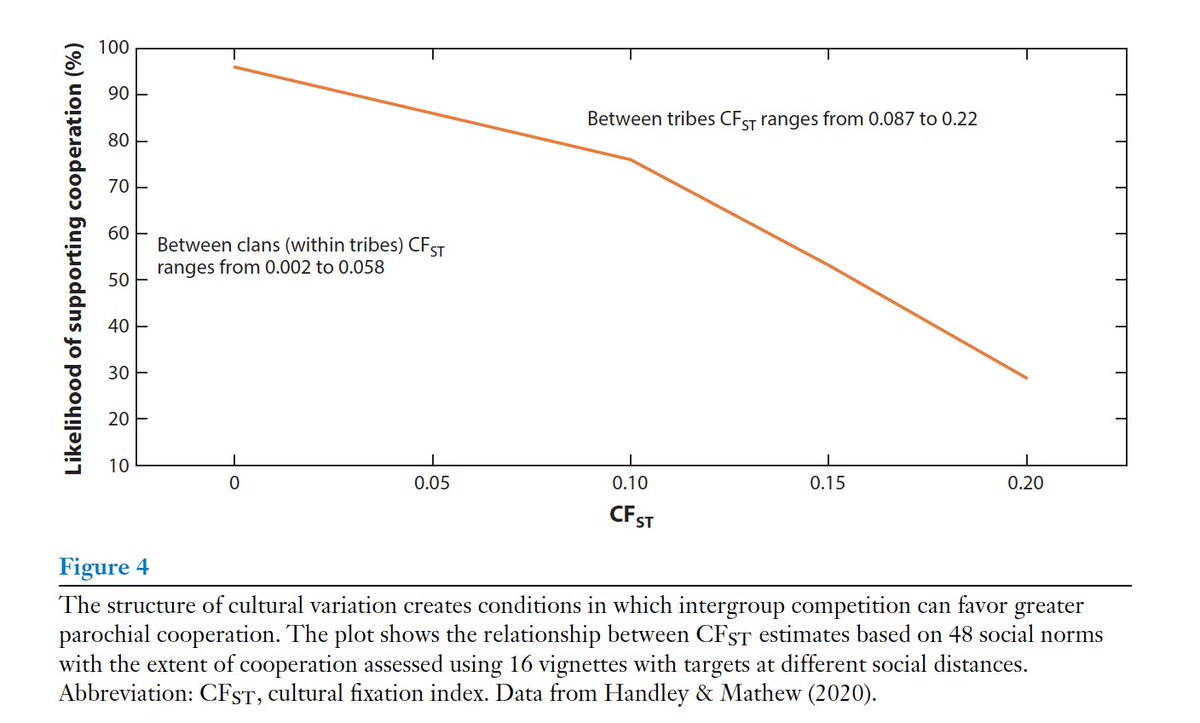
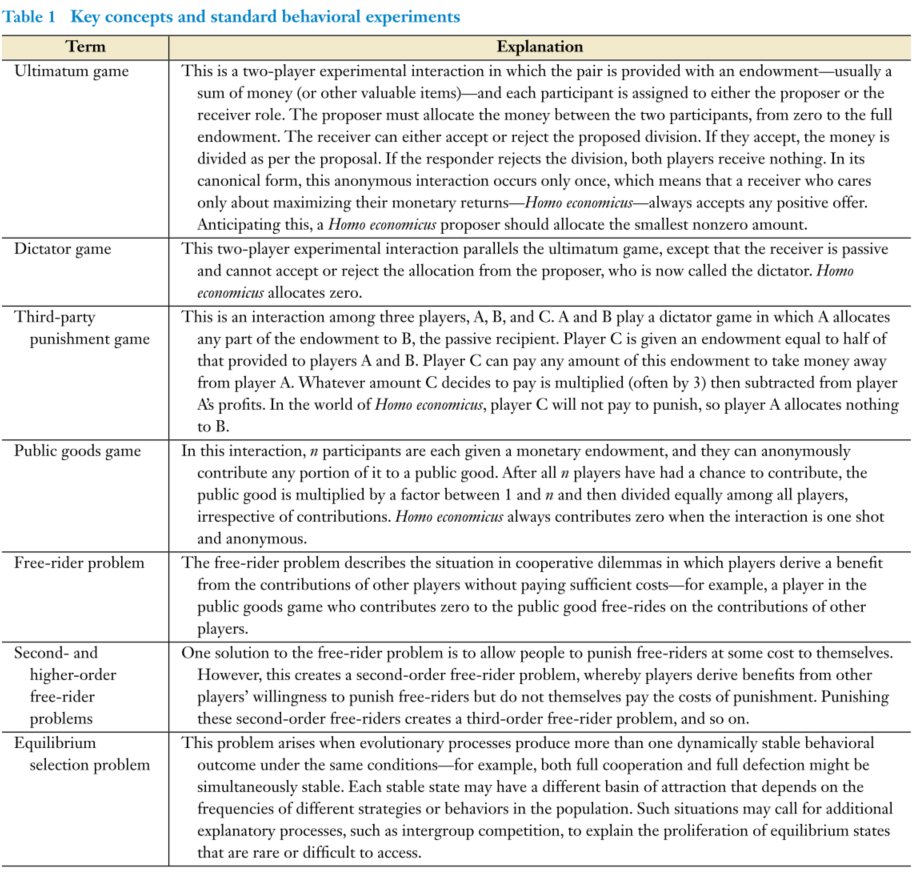
Social norms can create selection pressure on genes, they can self-domesticate. Institutions as connected and sometimes formalized social norms can create interdependence and fusion. They can align interests.
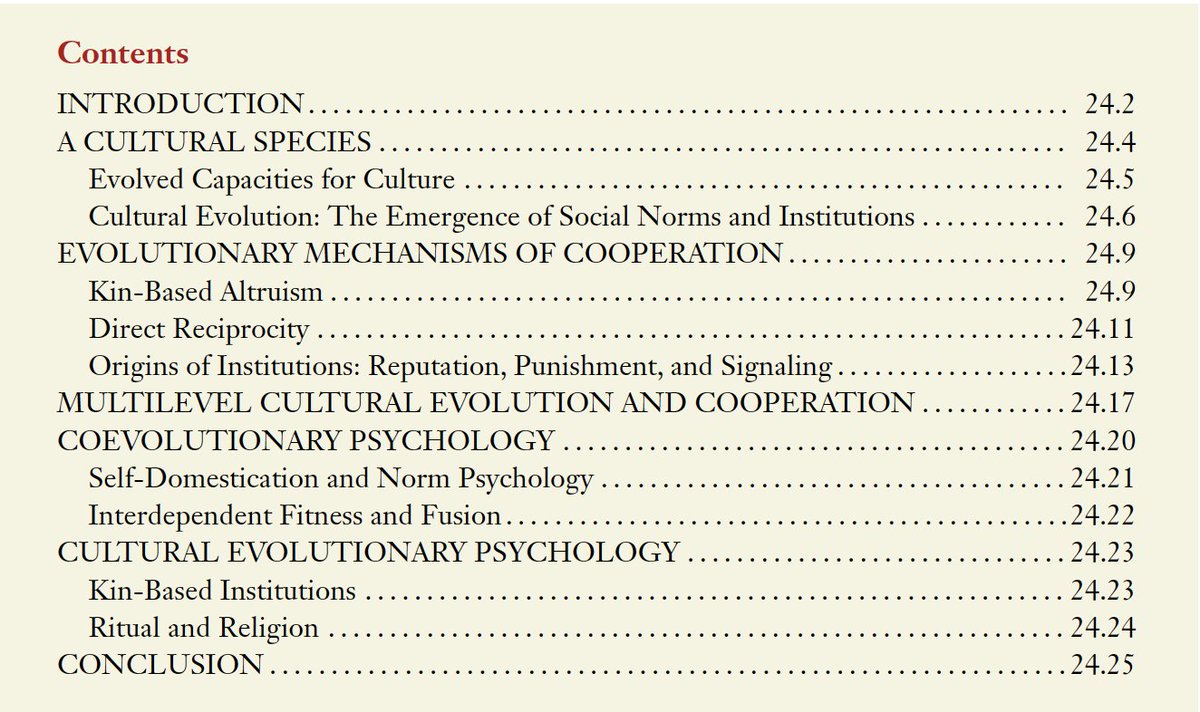
We end by revisiting the opening challenges. Check out the paper here:
https://www.annualreviews.org/doi/abs/10.1146/annurev-psych-081920-042106
http://muth.io/cooperation-review21
Norms vary by geography and over time. Also check out the related historical psychology paper.
